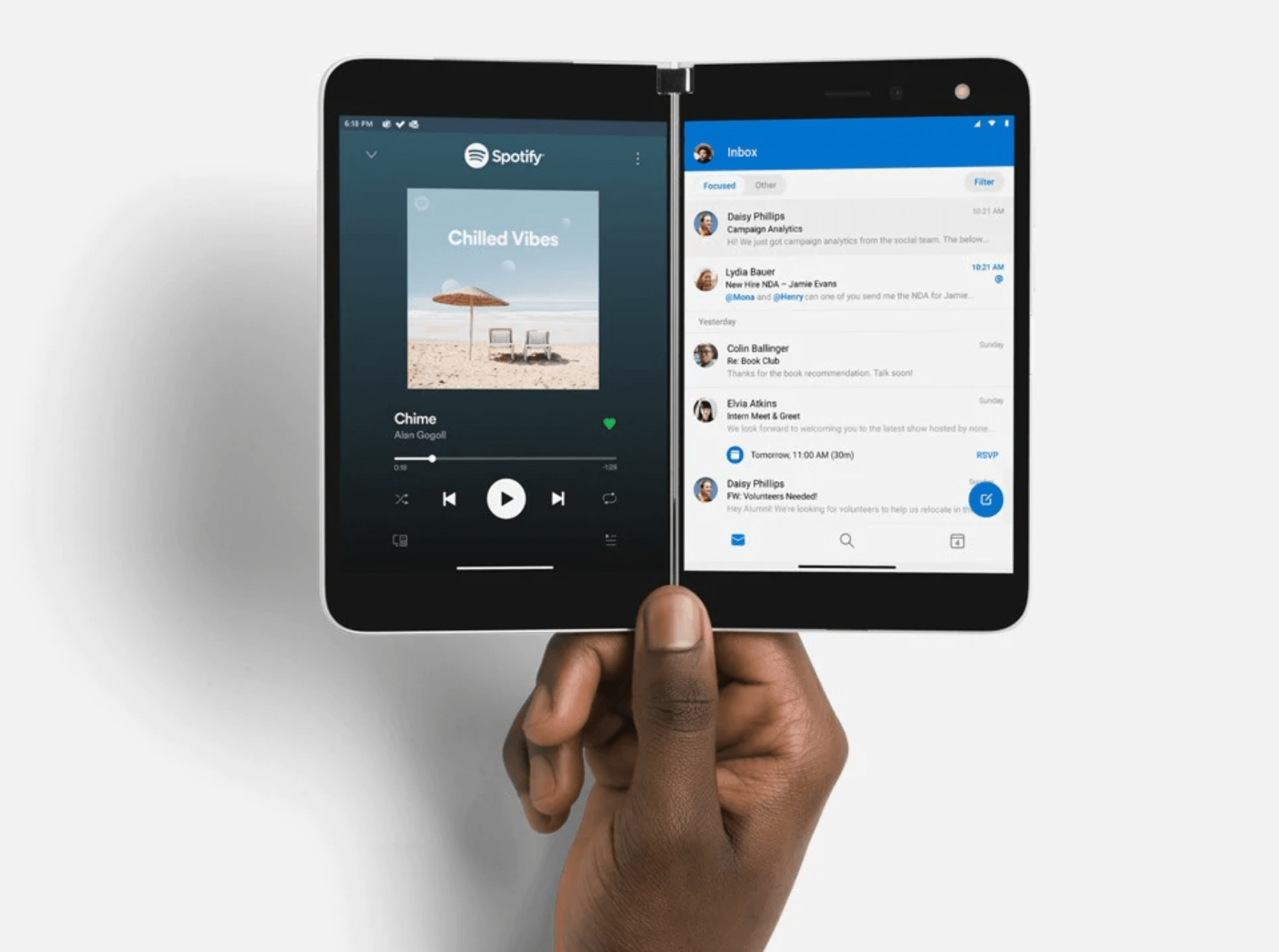

We may earn revenue from the products available on this page and participate in affiliate programs. Learn more ›
In the spring of 2019, folding smartphones felt imminent. Samsung was about to launch the flashy, expensive Galaxy Z Fold and numerous other manufacturers were showing off flexible prototypes and concepts designed to free us from the monolithic smartphone design. Then the Galaxy Fold stumbled when the screen and hinge proved too fragile for typical use. Just as Samsung got a solid fix in place for its $2,000+ device, Microsoft introduced its different approach to folding devices. The Surface Duo employs two typical touchscreens held together with a hinge. They can work together or separately and avoid the possibly durability and reliability issues involved with creasing a delicate piece of electronics.
Now, the better part of a year later, Microsoft has announced the pricing, specs, and availability for the Surface Duo. It’s up for pre-order today for $1,399, which is considerably cheaper than the full-sized Galaxy Z Fold, and matches the retail price of Samsung’s smaller, clamshell-style Galaxy Z Flip.
The Surface Duo’s defining feature includes a pair of vertical, 5.6-inch screens attached with a hinge that allows them to operate as a makeshift 8.1-inch display when laid flat open. Unlike a folding display, however, that leaves a very visible line down the center of the device. If you’re going to play a game on Xbox Game Pass or watch a movie, you’re likely going to want to do so on one of the smaller screens since the gap in the middle of the of the full display takes up precious real estate.

Instead of trying to sell the Surface Duo as an 8.1-inch screen that fits in your pocket, the company is focusing on the possible advantages of carrying a multi-monitor setup with you. So, you can video chat on one screen and check emails in another. Or, you can keep two browsers open next to each other to compare items or sites.
It runs Android—sorry if you were hoping for the rebirth of Windows Phone—but the apps don’t need special modifications because of the two-screen setup. The latest version of Android specifically supports folding phones, but the Surface Duo mostly treats apps as if they’re running natively on one of the two displays. Click a link in an app and it can open on the other screen. It’s built for multi-tasking rather than really immersing yourself in any kind of content. That happens without any special code.
From a hardware standpoint, the specs are slightly perplexing considering the price point. It doesn’t have 5G connectivity, which likely won’t be a huge sticking point in a practical sense for most users, but it’s odd for a $1,400 device. It also lacks NFC and Wifi 6. It has just one camera with an 11-megapixel sensor that handles typical photo and video shooting as well as video chatting. Two cameras—one front and one back—has been the bare minimum, even on cheaper phones, for years.

Rumors claim that Samsung will announce its next Z Fold in the coming weeks. It will undoubtedly draw more comparisons to Microsoft’s curious gadget, which starts shipping on September 10th. Right now, the Surface Duo seems like the vastly more practical option. With those huge bezels and no exterior screen, it even looks more practical at first glance. While it may not be as slick, it seems considerably more usable.
Microsoft has also introduced an API so developers can specifically adjust their apps to work with the Surface Duo and other dual-screen devices coming down the line. The company is adamant, however, that its partnership with Android and its efforts to make stock apps work without special requirements will help the Surface Duo’s adoption, especially in the early stages. That’s a lesson learned from the Windows Phone (RIP).
